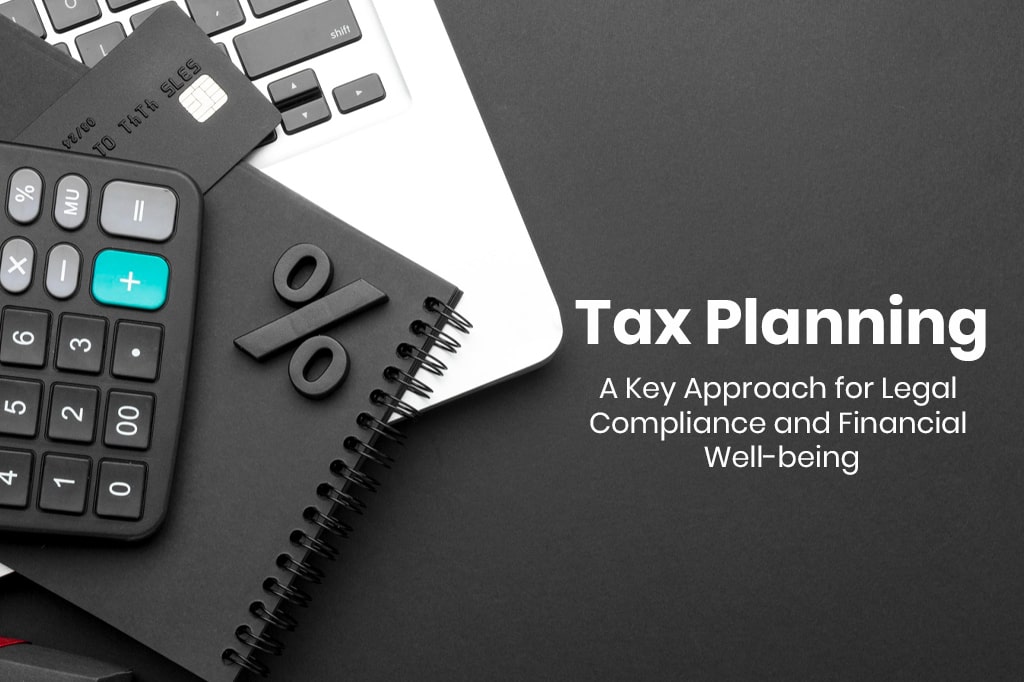Tax planning is a critical facet of financial management, focusing on optimizing financial decisions from a tax perspective. Its primary goal is to achieve maximum tax efficiency while complying with legal obligations. By strategically managing tax liabilities, individuals and businesses can secure significant returns over time and ensure sustainable financial growth.
Exploring the Essentials of Tax Planning
Tax planning is the strategic analysis of financial situations to reduce tax liability using techniques such as timing income, managing expenses, and utilizing tax-efficient investments. This proactive approach ensures that each financial decision is aligned with long-term tax goals, enhancing cash flow management and achieving better overall financial results.
Why Tax Planning Matters?
Effective tax planning offers several benefits beyond just saving money on taxes:
- Improved Cash Flow: By reducing tax liabilities, more funds can be retained for immediate needs or reinvestment.
- Strategic Decision Making: Understanding tax implications helps in making informed financial decisions, whether in investments, expenditures, or business operations.
- Compliance and Risk Management: Proper tax planning ensures compliance with tax laws and minimizes the risk of audits or penalties.
- Long-Term Financial Goals: Aligning tax strategies with long-term financial goals can lead to greater wealth accumulation and financial security.
Exploring Different Types of Tax Planning Strategies
Tax planning is a multifaceted approach to managing finances with the aim of minimizing tax liabilities while maximizing financial outcomes. Understanding the various types of tax planning strategies can empower individuals and businesses to make informed decisions that align with their financial goals and obligations.
- Long-term Tax Planning
Long-term tax planning involves strategies that span several years or even decades. It focuses on structuring finances and investments in a way that minimizes taxes over the long haul. Key tactics include:
- Retirement Planning: Contributing to retirement accounts such as IRAs or 401(k)s to defer taxes on income until retirement when tax rates may be lower.
- Estate Planning: Strategically transferring assets to heirs to minimize estate taxes using trusts, gifts, and other legal mechanisms.
- Investment Planning: Choosing tax-efficient investments like municipal bonds or growth stocks held for the long term to benefit from lower capital gains tax rates.
- Short-term Tax Planning
Short-term tax planning strategies are aimed at reducing tax liability within the current fiscal year. These tactics often involve timing income and expenses to optimize deductions and credits. Examples include:
- Income Deferral: Delaying receipt of income until the following year to defer taxes on that income.
- Accelerating Deductions: Prepaying deductible expenses such as mortgage interest or charitable donations before year-end to increase deductions in the current year.
- Tax Loss Harvesting: Offsetting capital gains with capital losses by selling investments at a loss to reduce taxable income.
- Permissive Tax Planning
Permissive tax planning involves taking advantage of tax incentives, credits, and deductions offered by tax laws. These strategies are entirely legal and encourage behaviors that the government deems beneficial to the economy or society. Examples include:
- Energy Efficiency Credits: Claiming tax credits for installing energy-efficient systems or appliances in your home or business.
- Research and Development Credits: Claiming credits for expenses related to research and development activities that innovate and improve products or processes.
- Charitable Contributions: Deducting donations made to qualified charitable organizations, which can reduce taxable income while supporting charitable causes.
- Avoidance vs. Evasion
It’s crucial to distinguish between tax avoidance, which is legal and involves using strategies within the tax code to minimize tax liability, and tax evasion, which is illegal and involves deliberately underreporting income or overstating deductions. Engaging in tax evasion can lead to severe penalties and legal consequences.
Tax Planning in India: Effective Strategies
In India, optimizing tax efficiency involves leveraging various deductions, exemptions, and investment avenues offered by tax laws:
- Understanding Tax Deductions and Exemptions:
- Section 80C Deductions: Invest in eligible instruments such as Public Provident Fund (PPF), Employee Provident Fund (EPF), National Savings Certificate (NSC), tax-saving fixed deposits, and Equity Linked Savings Schemes (ELSS). The maximum deduction under Section 80C is ₹1.5 lakh per annum.
- Health Insurance Premiums: Deductions are available under Section 80D for health insurance premiums paid for self, family, and parents. Additionally, deductions for preventive health check-ups are available within the overall limit.
- Home Loan Interest: Deductions can be claimed under Section 24 for interest paid on a home loan. There are also deductions available under Section 80EEA for first-time homebuyers.
- Education Loan Interest: Deductions can be claimed for interest paid on education loans under Section 80E.
- Utilizing Exemptions for Allowances:
- House Rent Allowance (HRA): If you live in rented accommodation and receive HRA as part of your salary, you can claim exemptions based on certain calculations.
- Leave Travel Allowance (LTA): Exemptions are available for expenses incurred on domestic travel for self and family members.
- Conveyance Allowance: Exemptions are available for expenses incurred on official purposes.
- Optimize Investments and Savings:
- NPS (National Pension System): Contributions to NPS are eligible for deductions under Section 80CCD(1) and additional deductions under Section 80CCD(1B).
- Sukanya Samriddhi Yojana (SSY): Investments in SSY for girl child’s education and marriage expenses are eligible for deductions under Section 80C.
- Senior Citizen Savings Scheme (SCSS): Senior citizens can invest in SCSS to earn regular income and claim deductions under Section 80C.
- Capital Gains Tax Planning:
- Equity Investments: Long-term capital gains on equity shares and equity-oriented mutual funds are exempt up to ₹1 lakh per annum. Beyond this threshold, gains are taxed at 10%.
- Debt Investments: Long-term capital gains on debt mutual funds and bonds are taxed at 20% after indexation benefits. Short-term capital gains are taxed at applicable income tax slab rates.
- Charitable Contributions:
- Donations made to eligible charitable organizations qualify for deductions under Section 80G. Ensure donations are made to approved entities to claim tax benefits.
- Plan for Retirement:
- Contributions to the Employees’ Provident Fund (EPF), Public Provident Fund (PPF), and voluntary contributions to the National Pension System (NPS) can help build a retirement corpus while offering tax benefits.
- Utilize Tax Slabs and Rebates Efficiently:
- Understand the income tax slabs and plan investments and expenditures accordingly to optimize tax savings. Utilize rebates available under Section 87A for individuals having total income up to ₹5 lakh.
- Seek Professional Advice:
- Consult with a qualified tax advisor or financial planner to understand personalized tax planning strategies based on your financial goals, income sources, and investments.
By implementing these tax planning strategies effectively, individuals can legally minimize their tax liabilities in India while maximizing savings and investments for future financial security. Regular review and adjustment of tax plans are essential to adapt to changing tax laws and personal circumstances.
Conclusion
Effective tax planning is crucial for individuals and businesses alike, enabling them to minimize tax burdens while achieving financial objectives. By understanding tax laws, evaluating financial positions, and implementing strategic plans, taxpayers can optimize their tax efficiency and secure sustainable financial growth. Proactive tax planning not only ensures compliance with legal requirements but also enhances overall financial health by maximizing after-tax returns.





